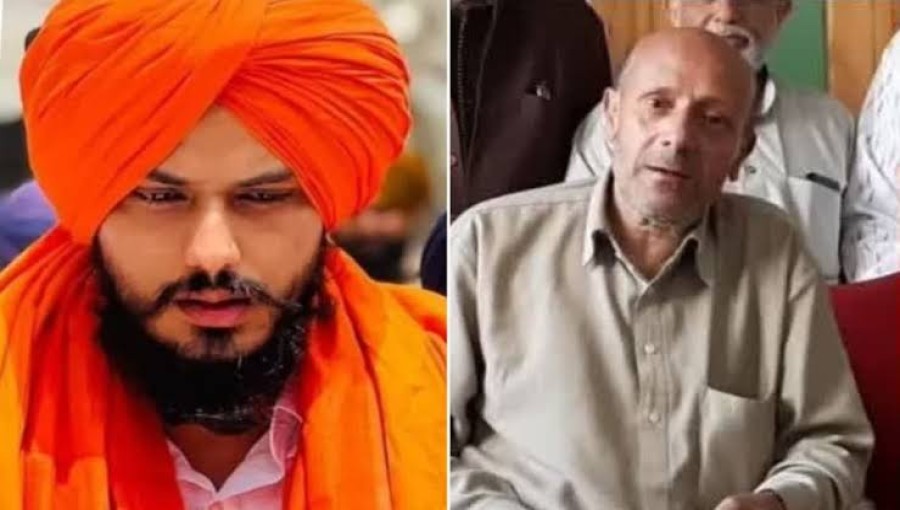New Delhi, June 4, 2024: In a surprising twist in the 18th Lok Sabha elections, two jailed leaders have secured significant victories, shaking up the political landscape. Engineer Sheikh Abdul Rashid from Kashmir and Khalistani separatist leader Amritpal Singh from Punjab emerged as winners, despite conducting their campaigns from behind bars.
Sheikh Abdul Rashid, a popular leader and former legislator from Kashmir, contested the election as an independent candidate. His daughter spearheaded his campaign, which began only on May 20, just two weeks before the fifth phase of voting. The Indian media outlet, Hindustan Times, reported that early booth polls had indicated a win for Omar Abdullah, the vice president of the National Conference. However, as the vote counting progressed, Rashid took the lead, ultimately securing over 1 lakh votes and winning the seat.
In Punjab, Amritpal Singh, a Khalistani separatist leader, contested the Lok Sabha elections from the Khadur Sahib constituency. Running against Congress candidate Kulbir Singh Zira, Singh managed to clinch a decisive victory. The Election Commission of India (ECI) confirmed that he won by a margin of over one and a half lakh votes. India Today also covered his unexpected win, highlighting the significant voter support he received despite his incarceration.
These unexpected victories by jailed leaders highlight the complex and often unpredictable nature of Indian politics. Engineer Sheikh Abdul Rashid's win underscores the strong local support and effective campaigning led by his daughter, despite his absence from the public eye. Similarly, Amritpal Singh's triumph reflects the substantial backing for his separatist agenda in his constituency.
The victories of these two leaders could have profound implications for their respective regions. In Kashmir, Rashid's win may influence the local political dynamics and voter sentiment, particularly concerning the National Conference's strategies. In Punjab, Amritpal Singh's success signals significant support for Khalistani separatist sentiments, potentially affecting future political alliances and strategies in the state.
These results emphasize the power of grassroots campaigning and the deep connections these leaders have with their constituencies, even when facing significant legal and political challenges. The outcomes serve as a reminder of the dynamic and often unpredictable nature of electoral politics in India, where public sentiment can defy conventional expectations and lead to remarkable electoral results.































Comment: